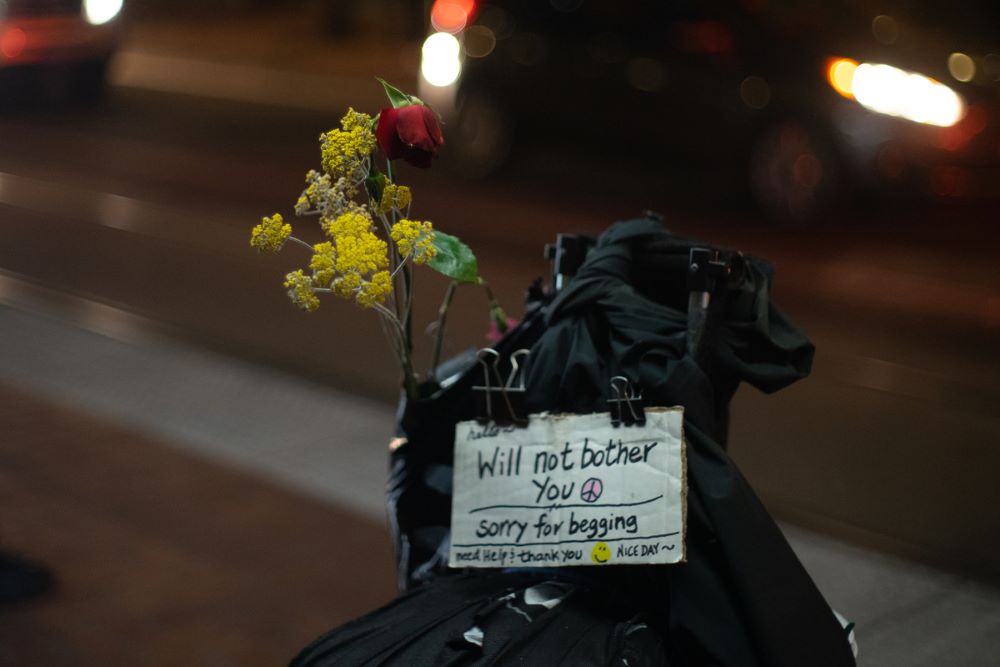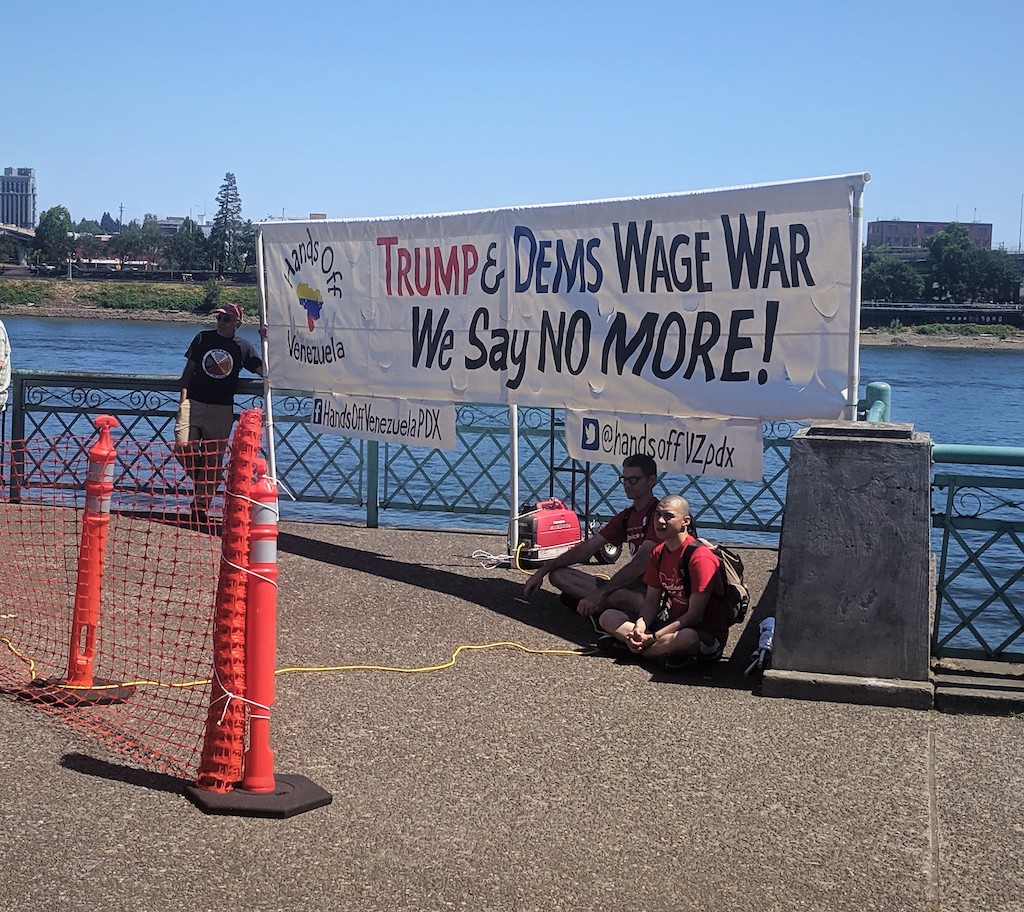It’s 9:15 a.m., and I’m on the MAX headed to campus. It’s not too early, but it still feels it regardless. Across from me is a person who I’ve seen from time to time, head tucked up against the window and a small amelodic snore reverberating off the window.
It’s 4:50 p.m., and I’m headed home. Different train, certainly, but here’s this morning’s beautiful dreamer again.
Whether or not this person has housing, whatever their circumstances are, our housing crisis is certainly behind this kind of displacement. Housing is lacking to a staggering degree, and there’s little political will to fix the problem. Every politician has a “plan” rooted in the immovable middle ground of doing nothing with a price tag attached—and it’s killing people.
Cui bono: who benefits from this crisis?
History is informative in so many ways on this topic, and the story it tells about housing the poor and displaced in Portland is an enraging one. While developers build on the high-end, the real estate market drains neighborhoods on the low-end. Supply grows and shrinks in equal measure with apartment buildings and small duplexes being converted into single family homes, erasing dozens of units of once-affordable housing a day. On the other end of the spectrum, the market is being bombarded by pricy units in buildings with names that sound like failed growth initiatives from the parasitic mid-market private equity firms that own them.
The “yes in my backyard” crowd, keen on building as much as possible without place and purpose restrictions, would have you believe that we can build our way out of this if we just open up the market with token concessions to the unhoused, and the “not in my backyard” crowd, averse to having anything built that might remotely change their neighborhoods, just wants to launch houseless people into the sun.
Somehow, these are our primary drivers when it comes to housing policy. The discussion and passage of a revision to the City of Portland’s zoning law that is intended to spark development is a reminder that every “humane” effort is tempered with draconian anti-houseless strings attached; every aggressive initiative is suddenly a giveaway to developers. Even the most straightforward effort to mandate construction of affordable units is met with evasiveness by developers.
Who benefits, then, is certainly not the houseless.
The days of giving everybody a slice of the cake are over; there should be no more concessions. This is a crisis.
Historic crisis, age-old response
You can usually plot the nature of gentrification in Portland by looking at historic landmark designations. As a gauge of a neighborhood’s status as gentrified or not, a quick glance at where these designations are clustered, their listing date and other minute factors such as reasons for listing can be almost completely illuminating. There are no surprises: Homes with the greatest year-to-year increase in price are surrounded by historic landmarks, while east of 82nd there is exactly one listing. The city’s diversity index also closely mirrors these landmarks, with a loss of diversity in areas where the greatest landmark density exists.
The question of who owns the city, then, is soundly answered: anyone not experiencing homelessness or the economic precarity caused by increasing rents.
City and county commissioners need to answer for this disparity to justify their need for broad concessions to developers and anyone else who profits from a massive uptick in houselessness and displacement among marginalized groups. Landlords are enjoying increased rents while organizing to oppose measures that would help get people off the streets. Why in a period of crisis is the problem always framed, pursued, managed and sold as a huggy-feely appeal to the market? Why is history only acknowledged in very specific neighborhoods? Why do solutions sound like they come straight out of a developer’s ransom note?
Newcomers of means aren’t having any problems finding housing, but the city lacks adequate protections to keep people housed and warmed. As a result, the outward pressure on poor renters, the disabled, elders and other marginalized groups creates vacuums in housing. City and county commissioners would rather preserve this disparity with a mix of hope that developers and landlords will do the right thing and an unshakeable fear of political backlash, all while struggling to blunt the impact of the over policing of the homeless.
Sadly, if you are displaced, you’re already living in that backlash. Collateral damage in a fight between city and county commissioners who want progressive cred by claiming they are doing a vaguely defined something and developers and landlords who see everything strictly in terms of financial gain.
Enough is enough.
There should be no more leeway. Voters must mobilize, and neighbors must pitch in to help keep people housed. City and county commissioners need to end their cycle of doing nothing to appease nobody while giving presentations and sending out press releases showing what they think the problem is. We know the number of houseless individuals and how many units we need; we see you have a “plan” for whatever it’s worth; we are aware it’s all a cynical political ploy. If the present is as consistent as the past, we already know what your plans and group-edited slideshows say.
Do something already.






